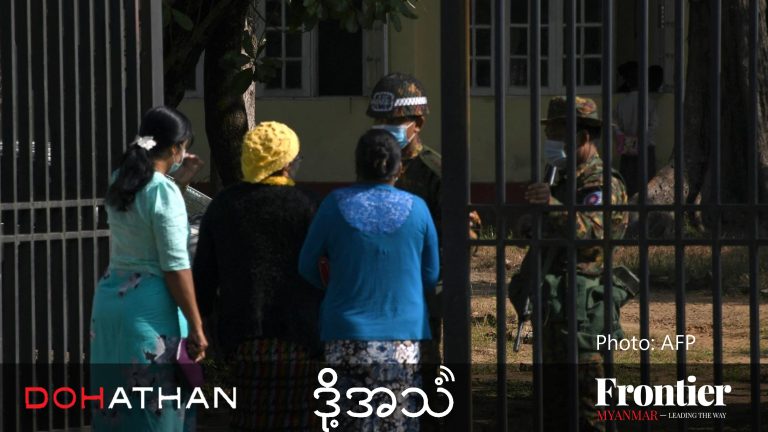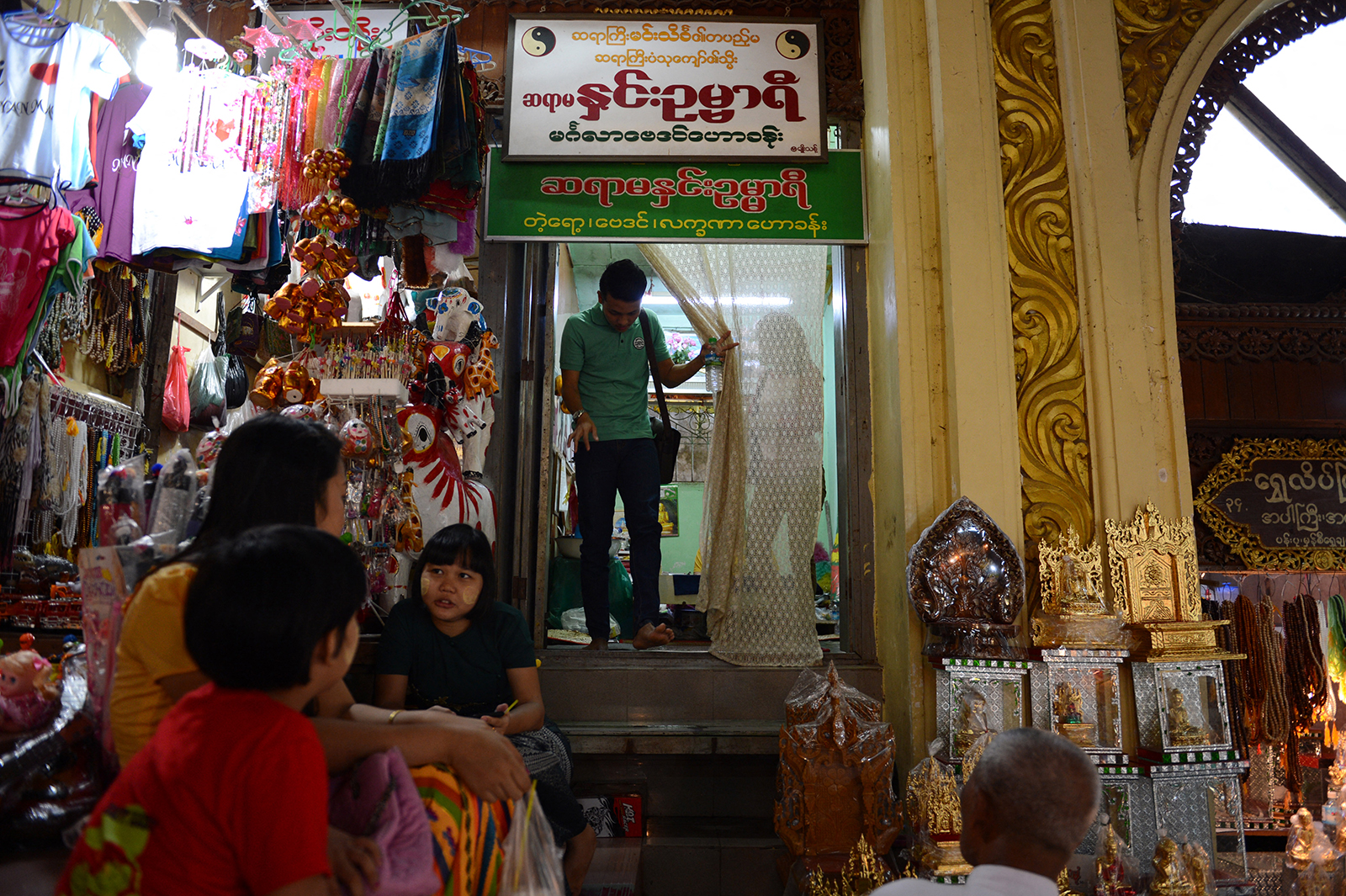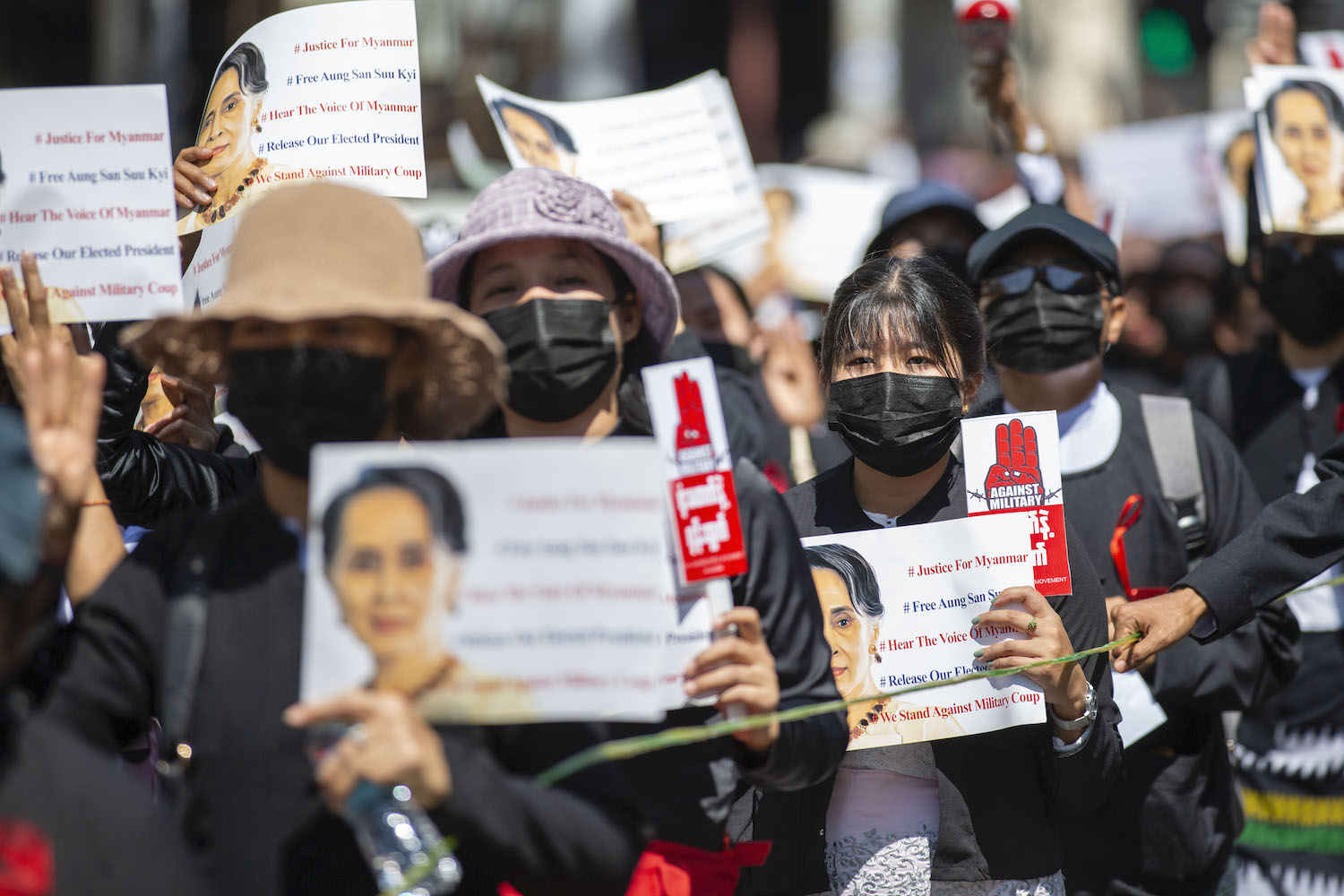Maurice Collis wrote prolifically about Burma and his experiences as a colonial public servant, but 80 years after he lived in the country, few readers of English have heard of him.
In London in the 1960s, more than 30 years after leaving Burma where he had been a district magistrate in Rangoon, Maurice Collis met Lord Stanley of Alderley, who had visited the former British colony decades before.
“I was in Rangoon in 1947, and your name still stank in the Pegu Club,” Lord Stanley told Collis, referring to the so-called gentleman’s club made famous in Yangon during British colonial rule.
Collis was born into a wealthy Irish family in Dublin in 1889, and joined the Indian Civil Service after leaving Oxford University. In 1912, he was posted to Burma.
Collis served in Palestine during World War I and returned to Burma in the early 1920s. He was a district commissioner in Rakhine State, living in Sittwe and Thandwe. In 1925, he moved to Rangoon to become deputy secretary to the British Governor, before being promoted to district magistrate in the city in 1929.
It was decisions he made as district magistrate, and one in particular, that so infuriated members of the British colonial establishment that he remained infamous at the Pegu Club more than a decade after he left the country.
Collis was a prolific writer who authored about 30 books, including histories, biographies, autobiographies and fiction, many of which focussed on Burma. One of his best-known autobiographies, Trials in Burma, chronicles his year as district magistrate. The colonial establishment was so ruffled by the independence of his decisions that he was transferred to the post of Excise Commissioner.
“Collis’ books are hugely popular in Burmese and his books are widely available,” said Joseph Woods, an Irish writer who is researching a book about Collis and his life in Myanmar. Collis’ books were not subject to censorship during military rule, said Mr Woods. “Perhaps because he understood Burmese culture better than other writers and because he was against the British establishment that he worked for,” he said.
Despite being popular among readers in Myanmar and elsewhere in Southeast Asia, few English readers have heard of him.
Mr Woods was unfamiliar with Collis’ work when he first visited Myanmar in 1992. In an interesting coincidence, he bought his first book by the Irish-born writer from a small bookshop in Ireland a few years ago. His research has taken him to the houses in which Collis lived at Sittwe and Thandwe when he was a district commissioner in Rakhine State in the 1920s. He also visited Myeik where Collis finished his days in Myanmar. Mr Woods believes that the house in which Collis lived in Yangon’s Golden Valley area no longer exists.
Trials in Burma focusses on three cases that attracted considerable attention at the time: a British merchant accused of murdering his servant; a prominent Indian accused of sedition; and a British soldier who crashed his car, seriously injuring two Burmese women.
In the murder trial, Mr Collis writes of a “Mr Hughes” who is accused of killing his servant. Although Mr Collis acquits the defendant of the murder and torture charges, in his judgement he writes that the young man should have administered first aid to his servant after admitting to “boxing” him on the ears.
“To reprimand a foreigner for the death of a local man was just simply not done,” said Mr Woods.
“What’s clear is his principled commitment to Burma, rather than the British colonial establishment. This ultimately got him into hot water and would ultimately render his career static.”
In his judgement, Collis reveals a mind conflicted by wanting to both please the British authorities and serve as an objective figure, a theme throughout the book.
Soon after the murder trial, Collis hears the case against the Mayor of Calcutta, Jatrindra Mohan Sengputa, who was accused of making seditious remarks in a speech made near the Sule Pagoda. Sengupta was a close ally of Mahatma Gandhi, who at the time was launching his campaign of civil disobedience against British colonial rule.
“Burma was part of the Indian Empire, and though the Burmese had little in common with the Indians they had the same aspiration for a free government, and found what was happening across the bay very relevant to their case,” Mr Collis wrote.
The British government regarded Sengupta as a dangerous agitator and wanted a conviction, but Collis could find little in the speech that justified a charge of sedition and sent him to prison for 10 days, a decision that embarrassed and angered the authorities.
“Because Collis had sentenced him, the High Court was unable to overturn the sentence or dispute it,” said Mr Woods. “So this really moved things along for Collis and he was still looked upon with real suspicion,” he said.
In Trials in Burma, Collis also documents the race riots between Indian dockworkers and Burmese labourers that erupted in Yangon in 1930, triggering days of violence that left between 300 and 500 people dead.
In one incident, Collis is called to protect a group of petrified Indians hiding in a house next to the court. The house had been surrounded by “a band of Burmese roughs armed with swords,” he wrote.
Collis, who spoke fluent Burmese, tries to calm the mob, which is responding to rumours about attacks on Burmese women that have long been a trigger for sectarian violence in the country.
One of the men tells Collis: “Those Indians inside have murdered Burmese women. A Burmese woman has had her breasts cut off. We cannot stand that.”
The police eventually arrive and take the Indian men to safety. “I have never seen men accept arrest with greater pleasure,” wrote Collis.
The third and final trial in the book is that of a British soldier who crashes his car when leaving the Rangoon Gymkhana Club, seriously injuring two Burmese women. The British authorities expect a lenient sentence, but Collis hands down a three-month jail term. It is overturned by the High Court and the soldier is fined.
“What’s clear is his principled commitment to Burma, rather than the British colonial establishment. This ultimately got him into hot water and would ultimately render his career static,” said Mr Woods.
The case of the soldier appears to have been the final straw and Collis was transferred to the post of Excise Commissioner before being sent to remote Myeik, in Tanintharyi Region.
“Banishment to Myeik inadvertently did Collis a good turn,” said Mr Woods.
Collis began collecting ceramics while in Myeik and this led to his interest in a 17th century British pirate, Samuel White. Collis lived in a house overlooking the town that had once been the site of White’s residence.
Collis left Burma in 1934 and the first book he wrote, Siamese White, was a biography of Samuel White.
Although offered positions in remote parts of Burma, Collis returned to the country only once more, to write Lords of the Sunset – A Tour in the Shan States.
Mr Collis, who settled in Maidenhead, England, wrote an average of two books a year for 17 years, before turning his hand to painting.
George Orwell and Rudyard Kipling are literary names more closely associated with Myanmar, even though they spent much less time in the country than Collis.
“I’m not sure I’d say he’s been written out of history [because of his anti-British views],” said Mr Woods. “In the Irish context at least, I don’t think it would have helped him to have gone back and lived in England,” he said.







